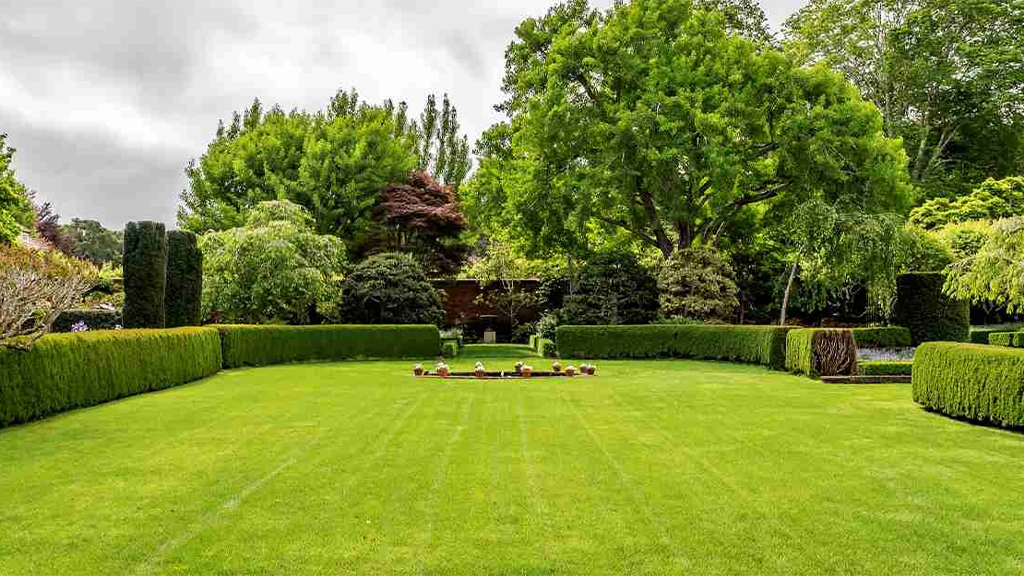A lush and healthy lawn can enhance the beauty and value of any property. One of the most important factors that will determine the success of your lawn is the type of grass you choose to plant. Because there are so many different types of grass, it can be difficult to decide which one will best suit your lawn. In this article, we discuss some of the best grasses for lawns and their unique properties.
Kentucky Bluegrass
Kentucky Bluegrass is a popular cool season grass known for its dark green color and fine texture. It thrives in full sun to moderate shade and is well suited to northern regions. This grass is durable and has a high traffic tolerance, making it a good choice for heavily used lawns. Kentucky Bluegrass is also resistant to disease and is known to repair itself quickly.

Bermuda grass
Bermuda grass is a warm season grass that does well in hot and humid regions. It has a fine texture and is known for its heat tolerance and drought resistance. Bermuda grass thrives in full sun and requires less water than other types of grass. It’s also fast-growing, making it an excellent choice for anyone wanting a fast-growing lawn.
Zoysia grass
Zoysia grass is a warm season grass that is gaining popularity due to its low maintenance requirements. It has a medium consistency and is known for its tolerance to heat and drought. Zoysia grass thrives in full sun to moderate shade and requires less fertilizer and water than other grass species. This weed is also disease resistant and is known to repair itself quickly.
fescue grass
Fescue is a cool season grass that does well in shady areas. It has a fine texture and is known for its shade tolerance and drought resistance. Fescue grass thrives in full sun to moderate shade and requires less water than other grass species. This weed is also disease resistant and is known to repair itself quickly.

St Augustine Grass
St. Augustine grass is a warm season grass well suited to coastal areas. It is coarse in texture and known for its salt tolerance and color tolerance. St. Augustine grass thrives in full sun to moderate shade and requires more water than other grass species. This weed is also disease resistant and is known to repair itself quickly.
There are several factors to consider when choosing the best grass for your lawn, including climate, soil type, sun exposure and intended use. For example, if you live in a northern region with cool temperatures, you may want to choose a cool season weed such as Kentucky bluegrass or fescue grass. On the other hand, if you live in a southern region with hot temperatures, you may want to choose a warm season weed such as bermuda grass or zoysia grass.
Soil type is another important factor to consider when choosing the best grass for your lawn. Some grasses, like bermuda grass and zoysia grass, prefer well-drained soils, while others, like fescue grass, tolerate soils with a high clay content. Soil pH is also important as some grasses prefer acidic soil while others prefer alkaline soil.
Another important factor to consider is sun exposure. Some grasses, like bermuda grass and zoysia grass, need full sun to thrive, while others, like fescue grass, tolerate shade. If your lawn receives a mix of sun and shade, consider a grass mix that can withstand a variety of sun exposures.
Finally, when choosing the best lawn, the intended use of your lawn should also be considered. If you have children or pets playing on your lawn, you may want to choose a grass with a high traffic tolerance, such as Kentucky Bluegrass or Zoysia grass. If you’re primarily interested in a low-maintenance lawn, consider a grass like zoysia grass or fescue that requires less water and fertilizer.
Ultimately, the best grass for your lawn depends on a combination of these factors. By taking the time to consider your climate, soil type, sun exposure and intended use, you can select the grass that will thrive in your yard and provide you with a beautiful and healthy lawn for years to come.
Another consideration when choosing the best grass for your lawn is its resistance to disease and pests. Some grasses are more susceptible to common lawn diseases like brown spot and dollar spot, while others are more resistant. For example, Kentucky Bluegrass is highly resistant to disease and pests and is known to repair itself quickly. On the other hand, St. Augustine grass is very resistant to pests but more susceptible to disease.
Finally, it’s important to consider the cost of each type of grass when choosing the best grass for your lawn. Some grasses are more expensive to buy and care for than others. For example, Zoysia grass is more expensive to purchase and install than other types of grass, but requires less maintenance over time.

In addition to environmental considerations, it is important to choose a lawn that fits the overall aesthetic of your home and landscaping. Some grasses, such as B. Kentucky Bluegrass, have a dark green color, which is very desirable, while others, such. B. St. Augustine grass, have a more subdued color. By considering the overall look and feel of your outdoor space, you can choose a lawn that enhances its beauty and appeal.
Finally, it is important to consider the availability of the grass in your area. Some grasses may not be readily available in certain regions, or may be more expensive to purchase and install. Choosing a grass that is common in your area can save you money and ensure your lawn is well adapted to the local climate and soil conditions.
In summary, choosing the best grass for your lawn requires careful consideration of several factors including climate, soil type, sun exposure, intended use, maintenance requirements, disease and pest resistance, and cost. By taking the time to consider these factors and researching different types of grass, you can choose a grass that will thrive in your yard and provide you with a beautiful, healthy lawn for years to come. Remember that proper maintenance and care is essential to keep your lawn healthy and looking its best.

